INTERVIEW: ‘Daring Step’ to a ‘Dignified People’ — Iraq Expert Parses Pope’s Apostolic Journey
Father Rifat Bader, PhD, Elaborates as Francis Kicks Off Historic Apostolic Trip
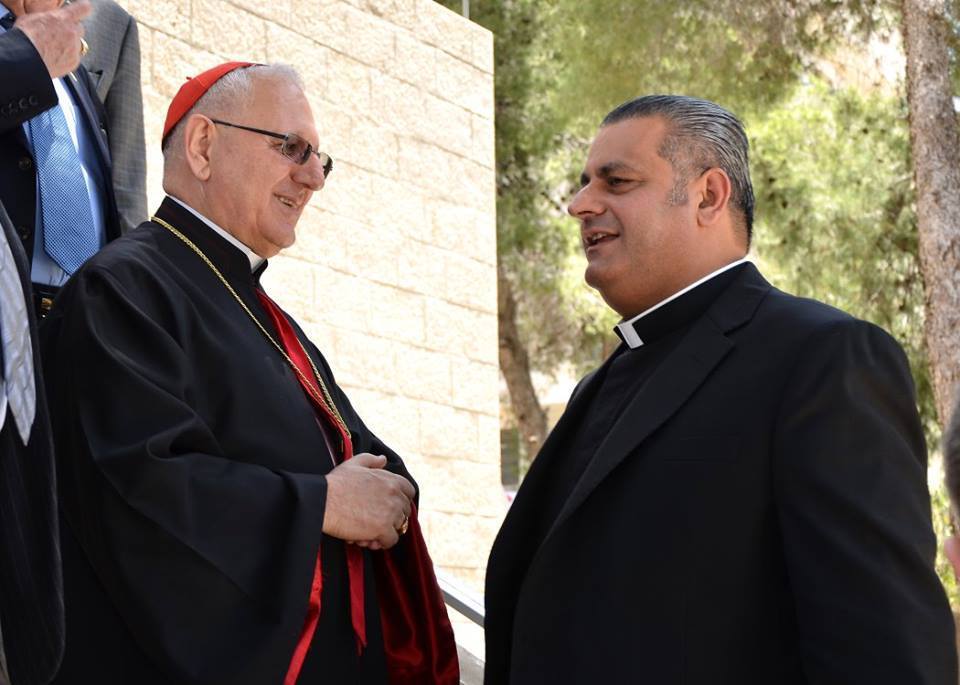
Pope Francis’ trip to Iraq is a ‘daring step’ to a ‘dignified people.’ This was expressed in an interview with Exaudi, in light of the Pope’s upcoming Iraq apostolic journey, Fr. Rifat Bader, Ph.D., an expert on Iraq with much personal experience in Iraq, with Iraqis, and with Iraqi refugees.
Fr. Rifat is Director of the Catholic Center for Studies and Media in Jordan, a unit of the Latin Patriarchate of Jerusalem. Also Editor-in-Chief of abouna.org, he served as spokesperson of the Catholic Church in Jordan, during three Papal visits: 2000, 2009, and 2014.
Here he sheds light on Iraq, the Iraqi people and Pope Francis’ March 5-8 trip:
***
Iraq & the Iraqi People
EXAUDI: Fr Rifat, please share about your experience with Iraq from your visits and expertise and how you know so much about the country? How are you so well versed in the nation?
I have had the honor to visit Iraq frequently. I also participated in several meetings particularly with the Catholic Patriarchs of the East who met for the first time in Iraq in late 2019.
EXAUDI: What does the nation mean to you personally?
Iraq is a dear country that neighbors my country of Jordan. Several political disturbances have taken place, and regrettably, this country lost numerous people due to wars, violence, and forcible displacement. Iraq has always been viewed as a country that respects religious freedom or at least freedom of worship. I recall that in the past, Iraq was one of the countries viewed with appreciation which included respect for religious freedoms and celebrating religious rites. In 2003, a radical change took place which involved domestic tension where animosity took root among people.
EXAUDI: What have you learned about the Iraqi people?
I have numerous Iraqi friends including bishops, priests, and families. I repeatedly talked about hosting over 50 people at our parish for two years. I used to listen to them daily regarding their beautiful life in Iraq before the war and prior to the recent wave of terrorism that was caused by the Islamic State (ISIS) in 2014. The Iraqis are dignified and this was reflected in the firm, resolute, and active Iraqi personality. The Iraqi people are those who are proud of their history and have self-esteem. That is why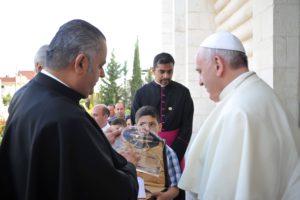 watching some of our Iraqi brethren suffer, due to the forced displacement in comparison with the status quo ante, represented a degradation of their noble and free life they experienced in their country.
watching some of our Iraqi brethren suffer, due to the forced displacement in comparison with the status quo ante, represented a degradation of their noble and free life they experienced in their country.
Apostolic Trip to Iraq
EXAUDI: What is the significance of the Pope’s visit to Iraq?
I recall the year 2000 when I was the spokesperson of the visit of Pope John Paul II to Jordan, where preparations were underway. We were told at the time that the Pope planned to go to Iraq prior to his visit to Jordan. He would go to Iraq so as to start his pilgrimage to the sites relevant to the history of salvation. He wanted in the first place to visit “Abraham”, the father of the faithful par excellence. We were strongly influenced by Pope John Paul II’s unwavering wish to visit Chaldean Ur in Iraq. We felt that it was a daring step owing to the fact that Iraq at that time was under economic and political siege. That is why Pope John Paul II discerned to visit Ur virtually. Later, he went to Egypt starting with the people of the Old Testament, namely Moses, and then proceeding to Jordan as there is a spiritual nexus between the two locations.
Today, there are regrettably exorbitant political complications that make it difficult for any pilgrim to visit these places in a few days, namely to start with Egypt, then Jordan, Palestine, and the Holy land. It is very great to note that the visit to the place where Pope John Paul II went as a pilgrim virtually came true by Pope Francis and paradoxically, it is happening really in the time of virtual meetings. This is the first significance of Pope Francis’ visit to Iraq.
EXAUDI: What are the others?
There are other humanitarian significances that incorporate solidarity with the Iraqi people that suffered from wars, the painful blows of terrorism, and the nonstop bloodshed which prevails until today though slightly diminishing.
During this visit, Pope Francis will kindle the flame of hope and grace among the Iraqi youth and families whether they are Christians or Muslim Sunnis and Shiites. He wants to kindle the flame of hope and grace anew.
EXAUDI: Why do you believe it is happening now as opposed to perhaps what some could consider a better or less risky time (in terms of pandemic (few vaccinated Iraqis, security, Covid-positive nuncio)?
Undoubtedly, Pope Francis visits Iraq amid difficult situations including the remnants of terrorism that are still active in Iraq, and the numerous cases of coronavirus infections that multiply every day. Yet, there is a determination by the Holy See and His Holiness the Pope personally to undertake this visit hoping that it will disseminate some hope among people this year, with the impression that life will restore its almost normalcy. The vaccines available do not cover the majority of the Iraqi people, that is why the danger is still around the corner. Yet, I believe that the Holy Father’s determination to visit the house of Abraham in the year that follows the issuance of his Encyclical Letter Fratelli Tutti is an indication that he wants to assert anew the humanitarian brotherhood document that he had earlier signed with the Sheikh of Al-Azhar and is incorporated in his Encyclical Letter. He definitely wants to include it with all the children of Abraham in the country of Abraham.
EXAUDI: Which of the Pope’s stops are, in your view, most significant (i.e., Mosul, Qaraqosh, Baghdad, Erbil)?
I believe that the visit has numerous significances. I am greatly moved when I notice that the Pope’s itinerary includes a visit to two churches: the Syriac Catholic Church of Our Lady of Salvation in Baghdad where the most mammoth massacre took place in the history of Iraq, as dozens of the faithful were martyred on October 30th, 2010. At the time, we had concluded the Synod of the Church in the Middle East, a week before, and our hopes were high.
It was regrettable that on the Sunday following the Synod meeting this horrible explosion took place and lowered the morale. Today, we cannot admit that the suffering families have forgotten what happened despite the consolation that followed. Yet, we admit that martyrdom in the history of Christianity has all the time been prevalent. These martyrs are witnesses of their faith. The Pope visits this church as if he says that the blood of the martyrs will not be wasted. This is not an indication of harboring a wish for vengeance, but it is hoped that what happened would sow the seeds of tolerance, reconciliation, and consolidating the faith of those who remain there.
EXAUDI: Fr. Rifat, could you tell us about the second church?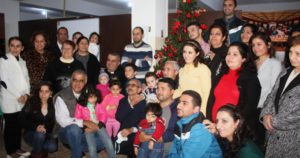
The second church is the Immaculate Church in Qaraqosh. We saw photos of how it was damaged the past years and its bells were removed. The statue of Blessed Mary the pure (Al Tahera) has been placed on top of the Church and prayers have been resumed there. Undoubtedly, a large number of families have emigrated or were forcibly displaced away from their parish church in Qaraqosh. This indicates that the forces of oppression and darkness cannot last long and that it should end any time.
EXAUDI: Looking at the mass emigration, we have seen almost an emptying of Christians from the Middle East and largely from Iraq. Do you believe this visit of Pope Francis could help bring to universal awareness the reality of this problem?
The Christian presence in Iraq has diminished in light of the terrorist acts and the successive wars. I believe that there were 1.5 million Christians in Iraq in the 1980s and early 1990s. Then, groups of Iraqis began to flock out of their country. From a point of optimism, we can say that some 400,000 people are still there. Therefore, Iraq lost over a million people. When we talk about the Christian presence, we are referring to a small number of people. I do not refer to them as a minority because I do not like this word. They are merely groups of small numbers. As we view the situation in Syria, we can say that almost a million Christians have already emigrated. In other words, we are talking about two million people who left the Middle East in ten years.
We are also talking about the ten years that followed the Synod of the Church in the East. We hope that the aftermath of the Synod would be much better than what we are witnessing nowadays. Yet, we are aware that the solution does not lie in the hands of the Christians. The solution was in the hands of the societies and of the forces of darkness, the forces of wars, and the forces that were able to spread horror and to destabilize societies as well as to ensure the displacement of Christians.
EXAUDI: Could it help change this trend?
Pope Francis goes to Iraq in atmospheres more abounding with optimism than at the time of John Paul II who was not able to go. This is a positive sign. Yet, pain still prevails and the diminishing number of Christians was intentional as they were targeted. Today, we want to restore hope and grace among those who remained as if we are talking about the end of the Old Testament era when there were few people from whom Lord Jesus came.
Nowadays, we can say that the Christians remaining in Iraq can start a new future. Let us say, establish a new era, God willing. Pope Francis’ charisma of love, humility, and sound teachings will undoubtedly instill this optimism in the new generations of the Iraqi people.
Fr Rifat’s Experience With Those Forced to Leave
EXAUDI: You know many Iraqi refugees (as Jordan and Jordan Caritas have given a great welcome as tragedy struck). Do you get the impression the Iraqi refugees wish to return home?
When we talk about the forcibly displaced Iraqis, we talk about several flocks of the forcibly displaced. The first batch of displaced people was in 1991 in the wake of the Gulf War. The second batch of displaced people followed the American invasion of Iraq in 2003. The third batch, which is very dear to us, is the one that followed the emergence of ISIS in 2014.
I recall that when Pope Francis visited us in 2014, he met with the Syrian refugees who came to our country three years earlier. He met them on the bank of the River Jordan and talked to them. He told the international community: “Do not leave Syria alone.”
A few weeks later, the situation deteriorated in Mosul and the forcibly displaced Iraqis came to our country in the wake of the ISIS attack and their forcible displacement which took place within 24 hours. What took place was painful. We were exhausted to welcome successive flocks of the forcibly displaced in cooperation with the political authorities.
At the orders of King Abdullah II, the borders and the airports were opened to welcome the Iraqi brethren. We had great worries at the time as I was close to Caritas Jordan activities. I hosted a number of families at my parish which is not far from the capital Amman. The first concern was psychological by focusing on how we keep the Iraqis free from the ghost of fear. The second concern was to provide them with food, clothing, and accommodation. It was not easy for them to accept staying in one hall.
EXAUDI: What do you know of their experience? What do you believe this visit means to those who left?
From my experience, I saw in them the image of the early Christians who shared everything. There was a large kitchen which could accommodate all of them. They had a strict daily program. Some would cook; others would do the cleaning; while others would serve food. The communion that we missed in the past years came true through accommodating our forcibly displaced Mosul Christians. I felt that I was watching a film about the early Christians who feared the oppression of the Romans. Love entrenched joy among them. This is what I witnessed while living with my Iraqi brethren. There were remnants of fear that accompanied them from Mosul as some children used to wake up at night and weep recalling the ominous night that forced them to flee with their families from their homes. Today, we have learned these lessons from the Iraqis. The most important one is that we can live one day by abandoning everything which seems cheap to us, except the grace of faith which is the treasure that we adhere to and which forces us to move out and start a new life, while maintaining the deposit of faith, or Fidei Depositum, according to Saint Paul.
Jameel Asho is one of the people who were displaced stayed in Jordan for 2 years, now he is living with his lovely family in Australia, he wrote a letter to his Holiness expressing his feelings towards this papal flight to his native country.
EXAUDI: What did he have to say?
He says: “Holy Father, how much we would have wished while we were far from our homeland, Iraq, to be there to share the joy of welcoming you to the land of the beloved homeland, in Nineveh, the land of prophets, and in our hometown, the city of Baghdad (Karakosh). We really wanted to be there to introduce you to the beauty of its nine churches, besides the modern ones, and to get to know the balance of their heritage, which is rich in faith, morals, love of the homeland and love for the others. And in order that we unite with you by praying in the Immaculate Church for peace in Iraq and the world at large”.
EXAUDI: As an expert in the Middle East and with much knowledge and experience in the various war-torn countries of the region, what will the visit mean for the other countries (i.e., Syria, Lebanon, Jordan)?
The neighboring Arab countries and the fraternal churches view Pope Francis with veneration and appreciation, for his intention to visit Iraq at this time where there are grave fears, including the pandemic which supersedes the security concern. Undoubtedly, security is not guaranteed in its total meaning, yet it is to be admitted that powerful security forces will accompany the Pope during his visit. Helicopters at airports will be used. We pray for the safety of the Pope and for all those who take part in the various functionaries. We hoped that there would be participating delegations from Arab countries. This is not possible due to the restrictions imposed in airports due to the pandemic. We will closely watch the positive outcome of the Pope’s visit with joy, respect, and pride. In the preparations phase, I watched a lot of rehearsal songs by the choirs in Iraq, none of these songs lacks the word peace and love. I think this visit or this pilgrimage of Pope Francis will contribute to praying and dreaming for a more peaceful Middle East, and will not lack the prayers for stability to all the neighboring countries, including Syria, Lebanon, Jordan, and Palestine.
EXAUDI: Is there anything else you would like to add?
I would rather point out that in 2000, when Pope John Paul II was hosted at a banquet in the Latin Vicariate in Amman in the presence of his delegation and the Patriarchs of the East, an Iraqi Chaldean bishop approached His holiness the Pope and said, “I hoped you would visit Iraq and the House of Abraham and because his was not possible, you visited it virtually. I came from Iraq and I brought you with me these stones from the House of Abraham.” Pope John Paul II looked at him and said, “Where do these stones come from? I know that Abraham lived in a tent and not in a house of stones.”
After 21 years, and in the year 2021, what is important is to realize that the human fraternity is the core of the pontificate of Pope Francis. We hope that all the people concerned with the visit will enter the tent of Abraham and the tent of human fraternity so that Iraq would look spruce, flicker, and attain unstinting efforts designed to respect the right of all the components of the Iraqi people, namely the right of religious freedom which is the pinnacle of all freedoms.
EXAUDI: Thank you, Fr. Rifat
***
Fr. Rifat is also Editor-in-Chief of abouna.org https://en.abouna.org/
EXCLUSIVE INTERVIEW: Cardinal Sandri: Pope in Iraq, ‘Hope for Martyred Church’
EXCLUSIVE INTERVIEW: Archbishop Gomez: For All Human Rights, Right to Life Is the Foundation
Related
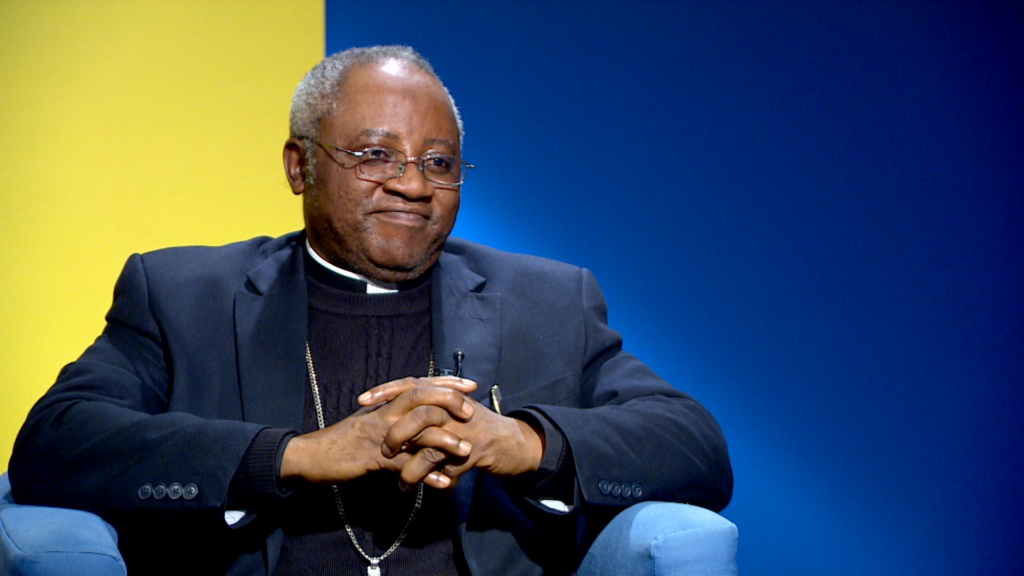
Despite hardships, Christianity is growing “astronomically” in northern Nigeria
Ayuda a la Iglesia Necesitada
10 April, 2025
3 min
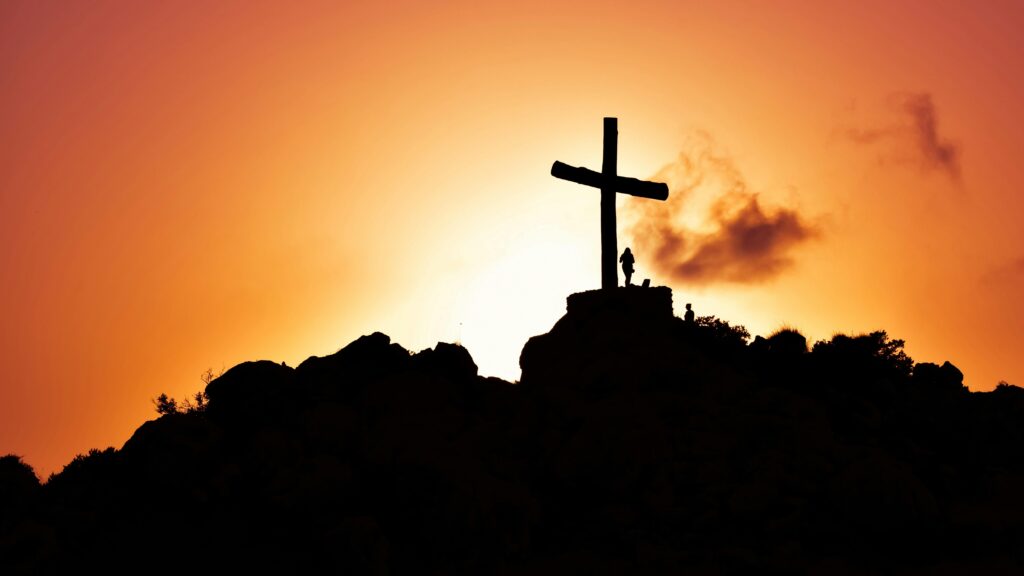
“Christianity, a Powerful Engine of Social Transformation”
Exaudi Staff
09 April, 2025
3 min
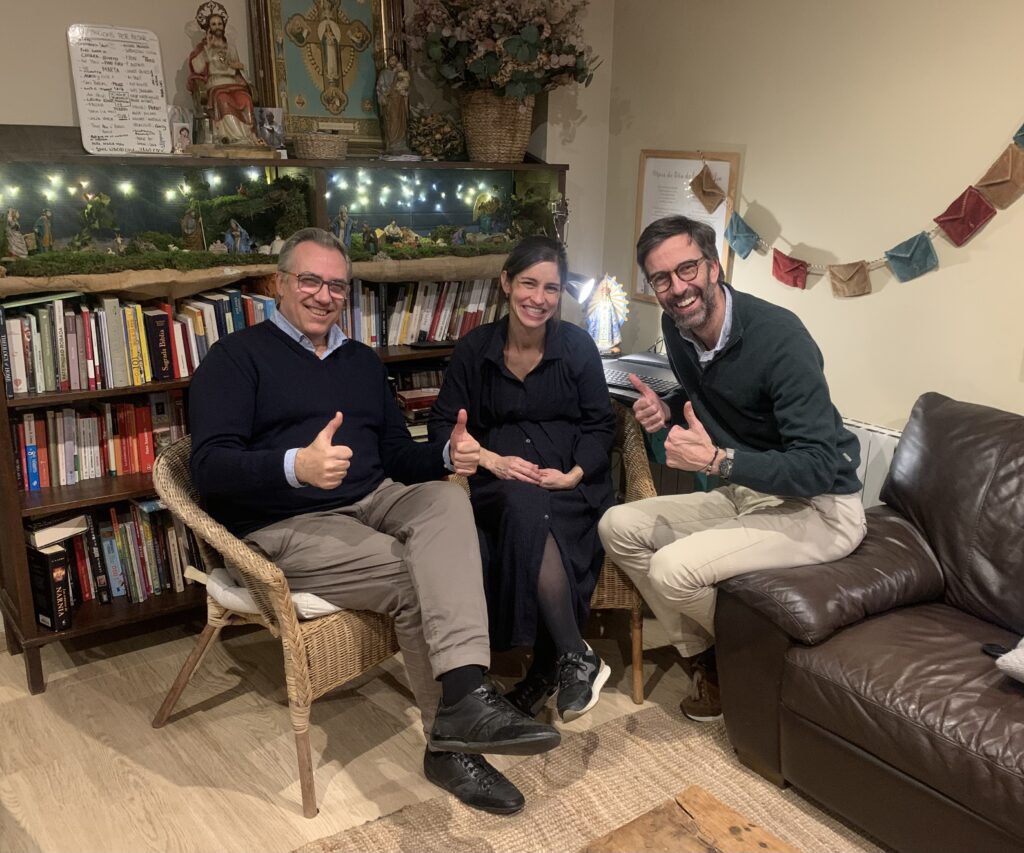
Let God be God
Albert Cortina
11 March, 2025
25 min

Pope Francis spent a peaceful night
Exaudi Staff
02 March, 2025
1 min
 (EN)
(EN)
 (ES)
(ES)
 (IT)
(IT)

